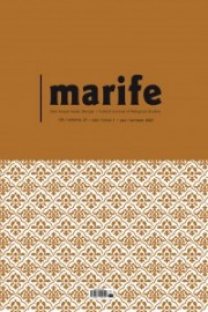İBN RÜŞD’ÜN TE’VİL ANLAYIŞINDA METODOLOJİ SORUNU
İslam dünyasında ister siyasi, ister fikri, isterse de sosyal merkezli olsun, hemen her akımın temelinde bir yorumlama faaliyetinin bulunduğunu söylemek, sanırız fazlaca iddialı bir söz olmaz. İslam tarihinde ortaya çıkan pek çok akımın temelinde, diğerlerinden farklı bir şekilde yorumlanmış bir metin görüyor olmamız, bu sözümüzü doğrular niteliktedir. Onun içindir ki, bu durumu fark eden İslam düşünürleri, erken dönemlerden itibaren bu söz konusu yorumlama faaliyetinin nasıllığı üzerine bir takım metotlar geliştirmek için çalışmalar yapmışlardır. Bu konuda kalem oynatan düşünürlerden biri de şüphesiz İbn Rüş’dür. O, kendi bakış açısıyla meseleye yaklaşmış ve tevil konusunda olmazsa olmaz bir takım metodlar ortaya koymuş, hangi metinlerin tevil edilebileceği, tevilin nasıl yapılacağı, kimlerin tevil yapabileceği, yapılan tevillerin nerede ve nasıl kullanılacağı soruları etrafında bir metodoloji ortaya koymuştur. Bu metodoloji ışığında farklı yorum anlayışlarını eleştiriye tabi tutan İbn Rüşd, yeri geldikçe kendi metodunun tutarlılığını ortaya koymayı amaçladığı yorum örnekleri vermekten de çekinmemiştir
THE PROBLEM OF METHODOLOGY IN IBN RUSHD’S HERMENEUTIC
I think that it would not be too assertive to claim that hermeneutic activity underlies almost every movement in the Muslim world, be it political, intellectual, or social. The fact that a text that has been interpreted differently from other texts underlies many currents that have arisen in Islamic history evidences this claim. Therefore, the Muslim thinkers who have come to realize this fact have from the early years onwards tried to develop theories to explain the nature of this hermeneutic activity. Ibn Rushd is no doubt one of the thinkers who wrote on this subject. He approached the issue from his own perspective and laid down some necessary principles regarding the allegorical interpretation of the Scripture, developing a special methodology about the questions, “Which religious texts can be interpreted allegorically? What is the procedure of this work? Who can perform this work? Where and how the allegorical interpretations will be used?” In the light of this methodology, Ibn Rushd criticized various conceptions of hermeneutics, giving examples of allegorical interpretations to establish the validity of his own hermeneutical method.
